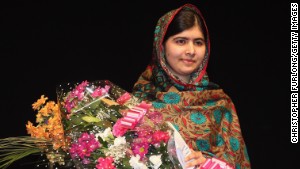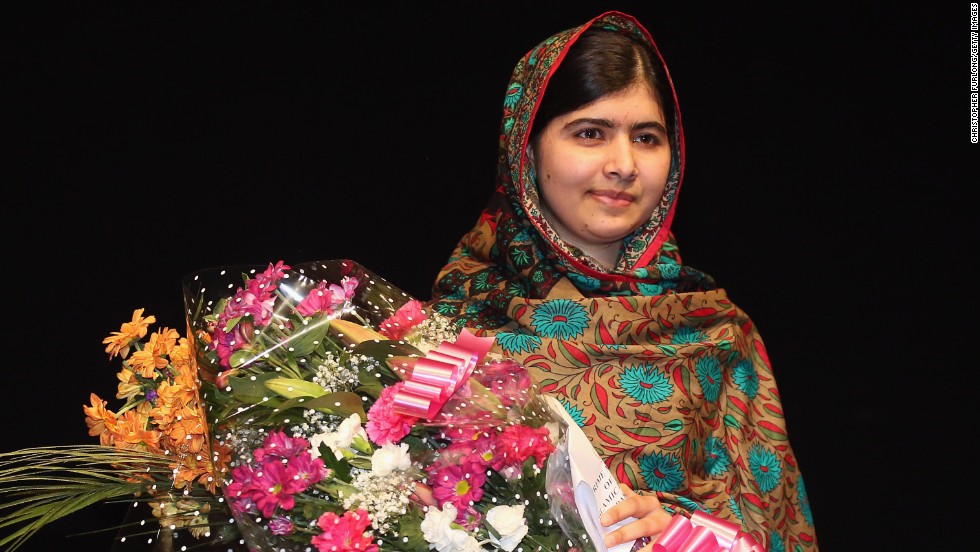Malala returns to Pakistan for the first time since attack
Islamabad, Pakistan (CNN)Nearly six years after being shot in the face and neck by the Taliban for advocating for the rights of girls, 20-year-old Malala Yousafzai returned Thursday to Pakistan.
Yousafzai arrived at Benazir Bhutto International Airport flanked by heavy security in the early hours of Thursday morning, CNN affiliate Geo TV reported.
Yousafzai, the youngest recipient of the Nobel Peace Prize, is expected to meet Prime Minister Shahid Khaqan Abbasi while she is in Islamabad, where the city is on high alert for security due to her visit.
News of her arrival made headlines in Pakistan, where many see Malala as a hero, but others consider her an agitator who should be silenced.
In 2012, an assailant from the Pakistani Taliban attacked 14-year-old Yousafzai and her classmates in their school bus in Mingora in Pakistan's Swat Valley.
Severely wounded, Yousafzai was taken by helicopter from one military hospital in Pakistan to another, where doctors placed her in a medically induced coma so an air ambulance could fly her to Great Britain for treatment.

Photos: Malala Yousafzai

















Little more than a week after being shot, Yousafzai got back on her feet again, able to stand when leaning on a nurse's arm at Queen Elizabeth Hospital in Birmingham, England.
Since her attack Yousafzai continued to be an impassioned activist fighting for girls to have the right to education anywhere in the world. She founded the Malala Fund, which invests in local educational initiatives for girls in Pakistan, Afghanistan, Nigeria and Kenya, and in Jordan, where it focuses on Syrian refugees.
After Yousafzai was attacked, the Taliban released a statement saying that they would target her again if she survived.
In her most recent public interview she spoke to talk show host David Letterman about how she missed "the rivers and mountains" of her home in Swat Valley and all she wanted was for her "feet to touch the ground of home."
'She defeated fear'
Locals in her hometown of Mingora were excited to hear of her return to Pakistan Thursday, expressing hope that she'd make the 250 kilometers (155 miles) trip from Islamabad to visit them in the Swat Valley.
"She should have come back much earlier, we welcome her, she is the pride of the world, why wouldn't she be ours as well? Her courage is an example for education in a place called Swat. She defeated fear in Swat," said Niaz Ahmed, a friend of Malala's father.
A student at Khushal Model School, where Malala studied before she was shot, said she was her idol. "When girls like us go to school in Swat the only reason is Malala Yousafza," said 16-year-old Faryal Niaz.
Teacher Fazal Khaliq said many people hadn't expected Malala to return for many more years, and would welcome frequent visits.
"Malala should come back again and again. She's only completed one school and we hope that she works on more schools in Swat. I feel like today is Eid," he said referring to the religious holiday.
Yousafzai persistently attended school in Mingora despite the growing threat of fundamentalists opposed to girls getting an education. She blogged for the BBC about the dangers of living in the area and the importance of girls going to school.
News Courtesy: www.cnn.com











